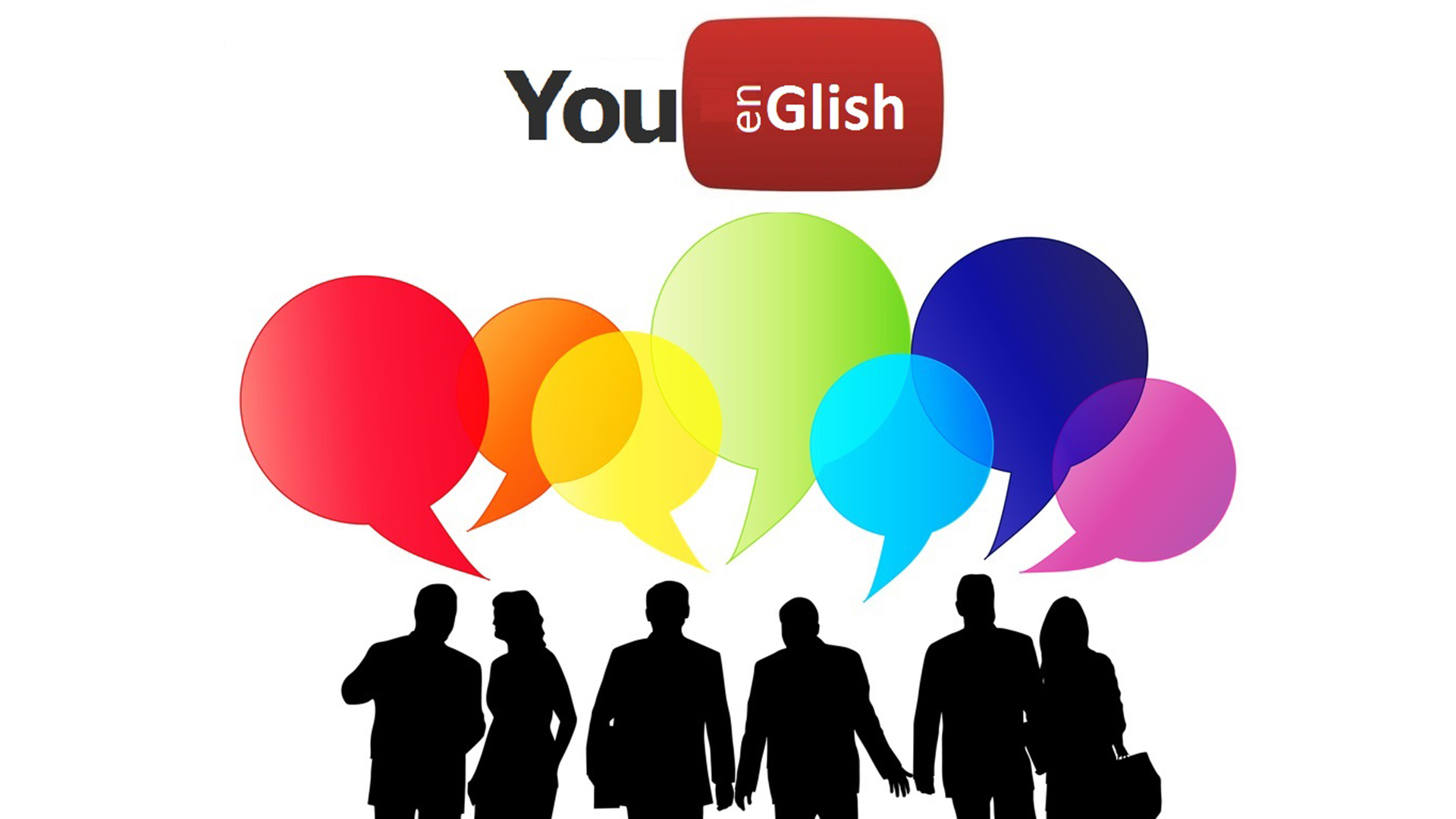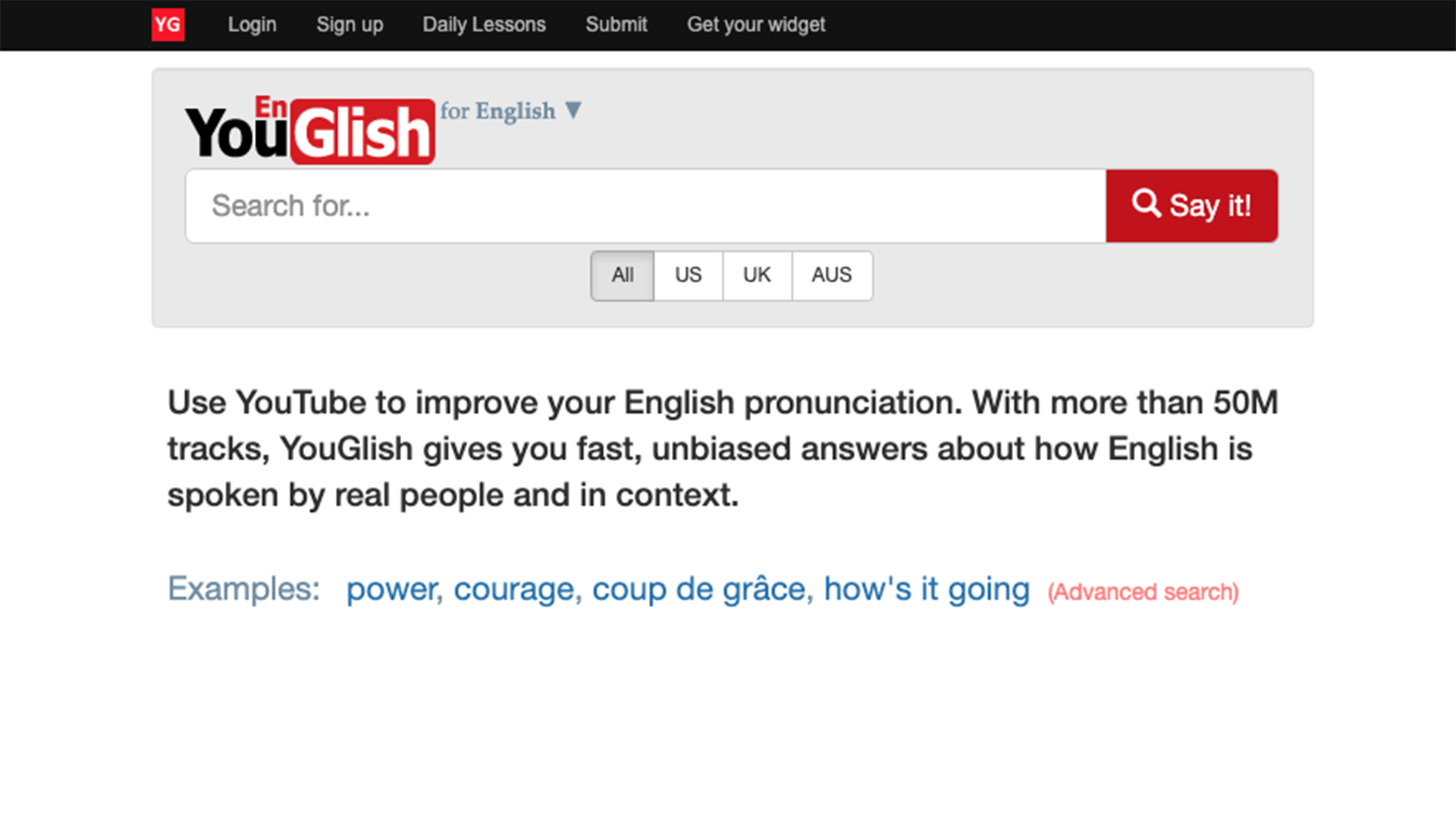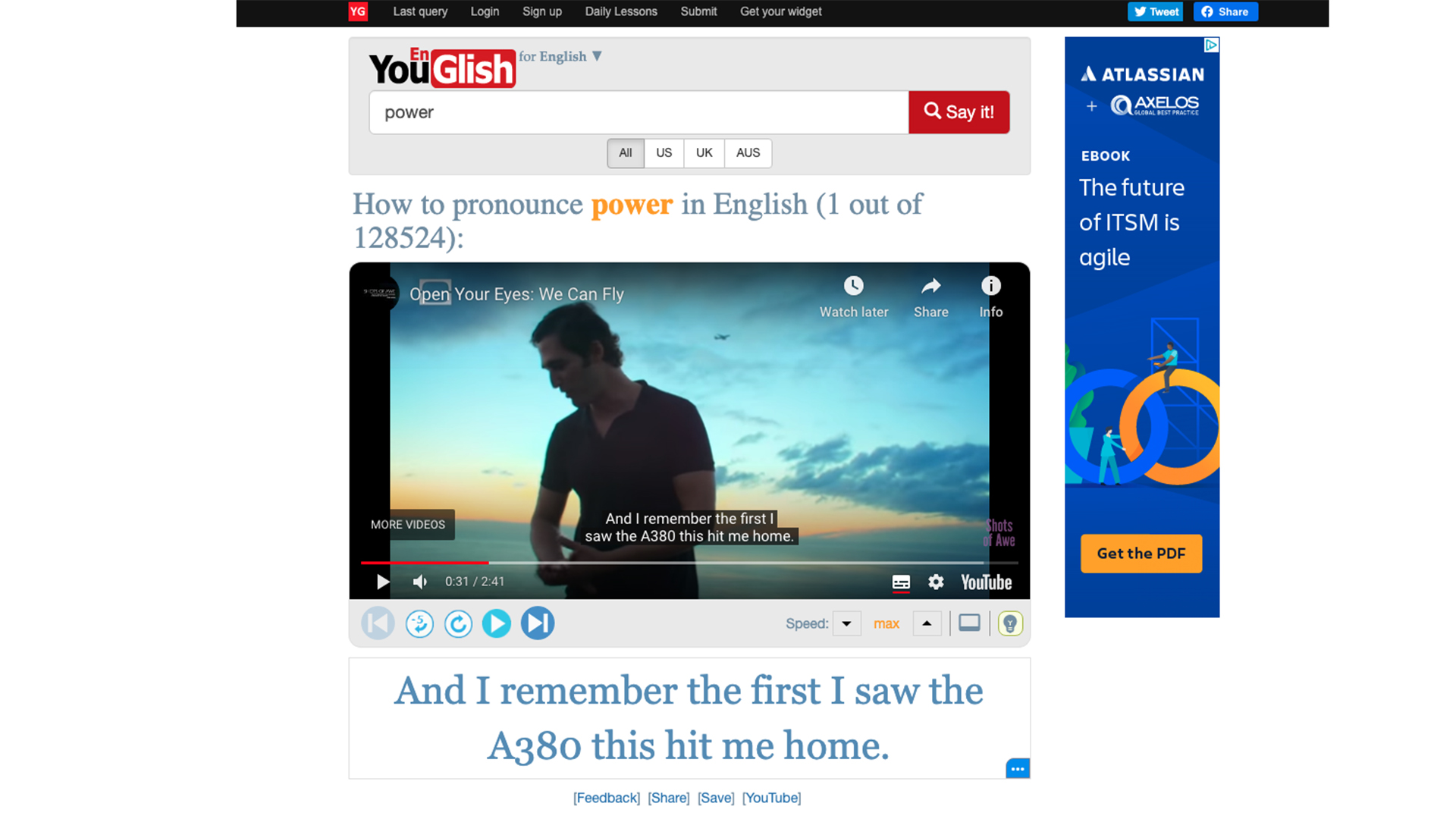What is YouGlish and How Does YouGlish Work?
Youglish helps you improve word pronunciation with useful YouTube video guidance

This article was updated in November 2023
What is YouGlish?
YouGlish is a great resource for learning to correctly pronounce words. As the name suggests, this is setup for English speakers and uses YouTube to deliver those guidance videos. But it goes beyond that to many language options.
Crucially, this uses native speakers of the language from which the word originates. This means you can hear how that word is pronounced by someone who can speak it naturally in the local tongue.
Since this uses YouTube as its source, videos are super simple to access and can be played across a host of digital devices.
The option to get the pronunciations from different places around the world is also available. You pick the region you want from multiple options, or all of those, if that's what you select, plus there is an option for sign language.
You can hear the audio playback after you type in the word you want, and it's also written below so you can read if volume up isn't an option -- although this is less helpful of course.
Obviously, all this makes YouGlish a great resource for ELL (English Language Learners) as well as ESL (English as a Second Language) students.

What's New In YouGlish?
YouGlish offers an ever evolving database of words and their pronunciations. At time of update here, the site offers more than 100 million tracks to pick from. The layout is still basic but it just works and that's sort of the point.
Tools and ideas to transform education. Sign up below.
Current languages available include: US, UK, AUS, Canada, Ireland, Scotland, and New Zealand.
How Does YouGlish Work?
YouTube has lots and lots and lots of videos -- as of 2020, there are 720,000 hours uploaded daily. So if you wanted to watch an hour's worth of uploaded YouTube videos it would take you about 82 years. Why is this relevant?
YouGlish is smart enough to trawl all that content to find the word or phrase you want to hear. It then offers a video with that word or phrase spoken in the language you selected.
The video itself could be about anything but the important part is that the word or phrase will be spoken clearly, in many cases multiple times, so you can hear how it is correctly pronounced.
For example, type in "power" in English and you get a man talking about fighter planes and the power they have, during which he repeats that word several times in the clip. But this is just one of 128,524 English options from which to pick.

What Are The Best YouGlish Features?
Aside from taking the work out of finding relevant videos for pronunciation, YouGlish also offers helpful options to make it even more clear.
You can activate the subtitles to be able to read the words as they are spoken in the video. This can help with spelling as well as recognition of how the word fits into a sentence structure.
Another really useful option in the menu allows you to control playback speed. This lets you play at "Normal" speed or slow down to hear the words spoken more slowly. You can also go faster if that helps. These options range from "Min" for minimum to "0.5x" to "0.75x" then back to normal before going faster through "1.25x" and "1.5x," "1.75x" and then "Max" for the fastest playback.
A handy button featured below the video allows you to go back five seconds so you can repeat a section over and over without having to use the tracker to find that point.
You can toggle on a thumbnail view to see all the other videos in the list so you can skip to one that looks most relevant. A light icon allows you to play in dark mode for a more focused look.
YouGlish works for a selection of languages and can be played back in multiple accents and dialects for each. The language options are Arabic, Chinese, Dutch, English, French, German, Italian, Japanese, Korean, Portuguese, Russian, Spanish, Turkish, and sign language.
Is YouGlish Useful for Teachers?
YouGlish is a very valuable tool not only for individuals, but also for teachers with ELL and ESL students.
You can narrow down your search by the word, by class, by phrase class, or by context. The tool also provides tips on how to improve English pronunciation – written below the video. This includes the phonetic pronunciation as well as suggestions of other words that help with pronunciation.
Teachers can use the Restricted Mode to use these videos and guides in the classroom. It's worth noting that educators should be careful about inappropriate words and adult content as YouGlish won't necessarily filter for these. Also it’s a good idea to check the clips before sharing them in a classroom.
YouGlish best tips and tricks
Speak as a class
Use this app on the big screen and have students try to pronounce a word before playing it to the class to hear.
Link words
Explore a language using similar words to show how certain letter combinations are pronounced in that language across different sentences.
Reverse it
Play a word and see if students can work out where that word has come from, despite perhaps it not being as expected.
Luke Edwards is a freelance writer and editor with more than two decades of experience covering tech, science, and health. He writes for many publications covering health tech, software and apps, digital teaching tools, VPNs, TV, audio, smart home, antivirus, broadband, smartphones, cars and much more.
